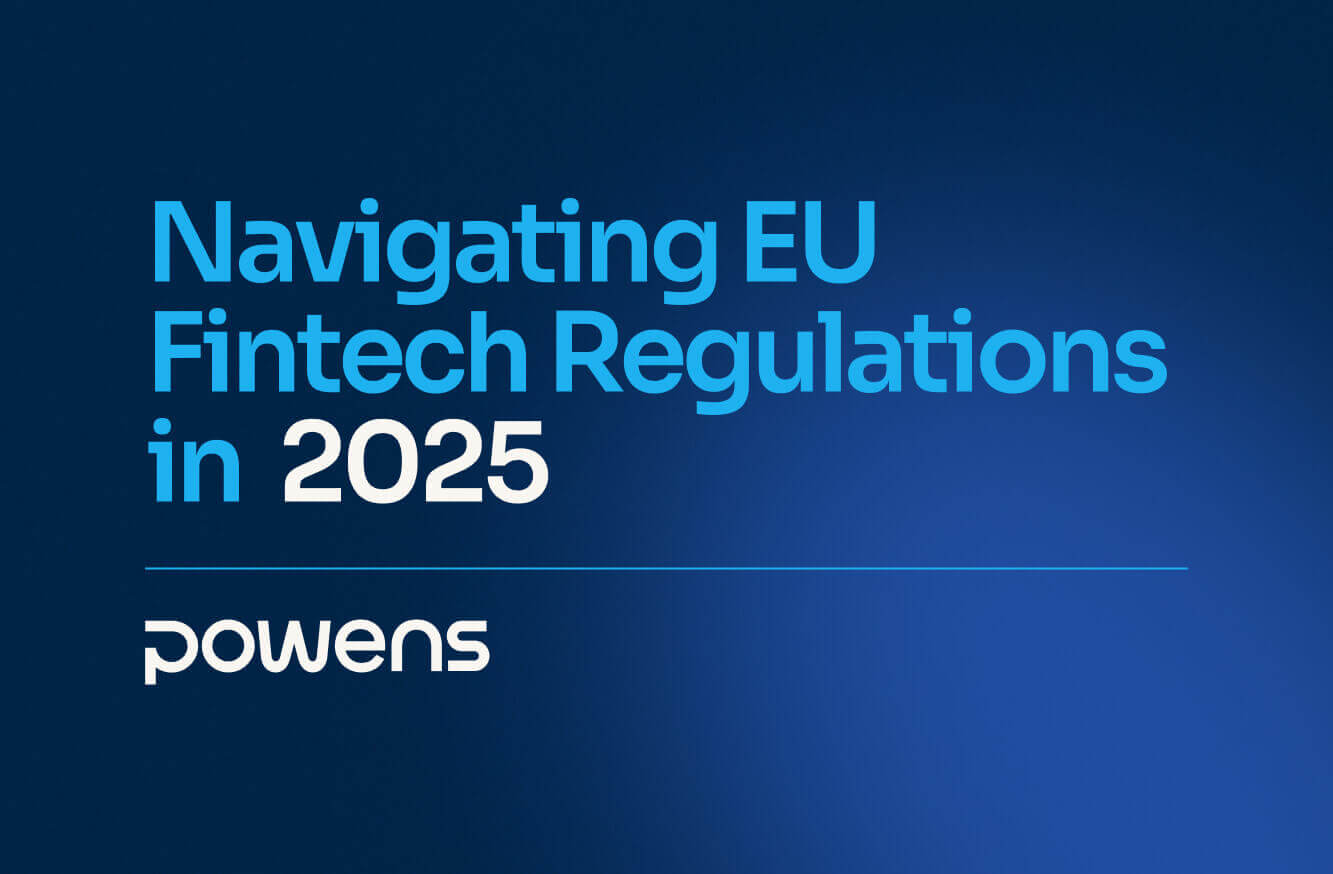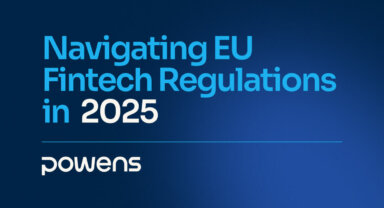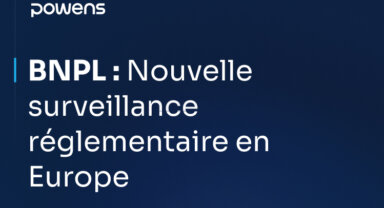Is it truly a New Year without a wave of new regulatory obligations?
2025 is set to bring significant shifts to the fintech landscape, with an increased emphasis on digital security, consumer protection, and streamlined operations. As financial services evolve, EU regulators aim to ensure transparency, accessibility, and security are at the forefront.
Here’s a breakdown of six critical EU fintech regulations for 2025 and what they mean for your business.
Payment Regulations: PSD3, PSR, and Instant Payments Regulation
Purpose:
These regulations aim to modernize the payment ecosystem by prioritizing security, competition, and efficiency. PSD3 and PSR enhance fraud prevention and ensure fair competition between banks and fintechs, while the Instant Payments Regulation accelerates Europe-wide adoption of real-time payment solutions.
Key Updates:
PSD3 (Payment Services Directive 3.0):
PSD3 introduces stronger fraud prevention measures and mandatory frameworks for secure data-sharing between banks and third parties. This ensures a level playing field while bolstering consumer rights.
Payment Services Regulation (PSR):
Complementing PSD3, PSR focuses on creating unified payment standards across EU Member States. Businesses will need to comply with new reporting and interoperability rules.
Instant Payments Regulation (IPR):
IPR, effective since April 2024, mandates instant payment services at the same cost as traditional credit transfers. By January 2025, all payment service providers (PSPs) must comply, reshaping transaction speed and pricing structures.
E-invoicing
Purpose:
Standardizing electronic invoicing (e-invoicing) across the EU to facilitate seamless cross-border trade and improve operational efficiency.
Key Details:
Implementation timelines vary across Member States.
- In France, large and medium enterprises must issue e-invoices by September 2026, with SMEs following in September 2027. All businesses must accept e-invoices by 2026.
- In Spain, QR codes on invoices become mandatory by 2026, and large taxpayers face B2B e-invoicing deadlines by 2027. Smaller companies must meet interim software compliance by 2026.
E-invoicing promises to reduce costs, minimize manual errors, and streamline payment cycles, especially for cross-border transactions.
You may like: All About the B2B E-Invoicing Mandate in France: A Complete Guide
Financial Data Access Directive (FiDA)
Purpose:
Expanding Open Finance through standardized rules for data sharing, accessibility, and security in financial services.
Timeline:
- FiDA adoption is expected by early 2025.
- Designed to complement the Data Act (2024), FiDA promotes consumer privacy while enabling broader data-sharing for fintech innovation. Its primary focus lies in granting secure access to diverse financial data types beyond traditional banking.
Revised Consumer Credit Directive (CCD2)
Purpose:
Enhancing consumer protection in credit agreements by ensuring fair practices and robust creditworthiness assessments.
Key Points:
- CCD2 includes smaller loans (under €200) and digital credit products like Buy Now, Pay Later (BNPL).
- From November 2026, lenders must perform stringent creditworthiness checks to curb over-indebtedness and boost financial stability.
You may like: How CCD2 Impacts BNPL Providers
Markets in Crypto-Assets Regulation (MiCA)
Purpose:
To establish a unified regulatory framework for crypto-assets, ensuring market integrity and investor protections within the EU’s evolving crypto landscape.
Implementation Timeline:
MiCA’s regulatory framework is now fully in force as of December 30, 2024.
The implementation was phased, with rules targeting stablecoin issuers taking effect in June 2024. The remaining provisions, applicable to crypto-asset service providers, trading platforms, and other market participants, have been enforced starting December 2024.
This comprehensive regulation aims to:
- Standardize requirements for all crypto-asset service providers (CASPs).
- Address previously unregulated crypto-assets.
- Ensure greater transparency, security, and protection for investors in the sector.
MiCA’s introduction marks a significant milestone in aligning the EU’s financial system with the rapid growth of crypto and blockchain technologies. By establishing clear compliance rules, MiCA reduces risks while fostering innovation across the region’s crypto markets.
Digital Operational Resilience Act (DORA)
Purpose:
Strengthening the cybersecurity and operational resilience of EU financial entities.
Application:
Mandatory compliance begins in January 2025.
DORA emphasizes IT risk management and resilience testing while regulating third-party providers. Its goal is to mitigate rising cybersecurity threats across banks, insurers, and investment firms.
Partner with Powens for Compliance and Growth
Powens, a leader in Open Finance solutions in France, provides the tools to navigate this evolving regulatory environment. As a licensed financial provider, Powens enables businesses to:
- Build robust financial infrastructures.
- Ensure compliance with EU regulations while focusing on growth and innovation.
Let Powens help you stay ahead of the curve. Contact us today to align your operations with 2025’s regulatory challenges.

 Jan 14, 2025
Jan 14, 2025 













